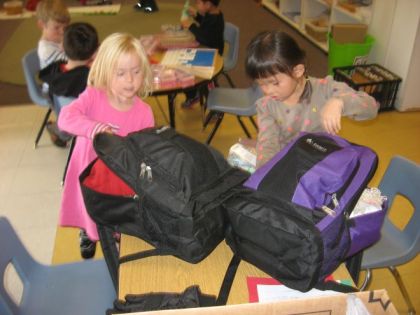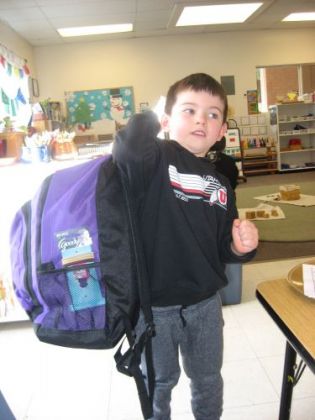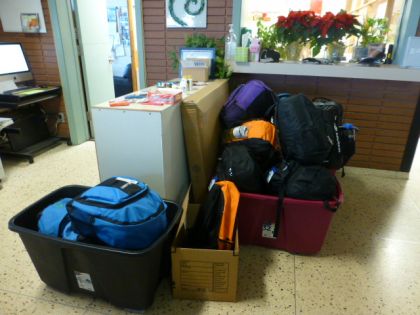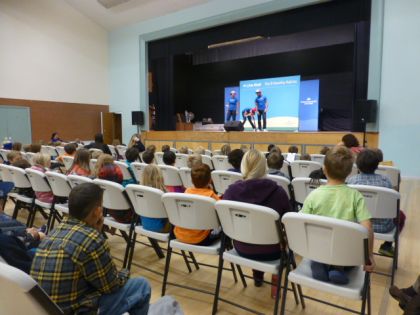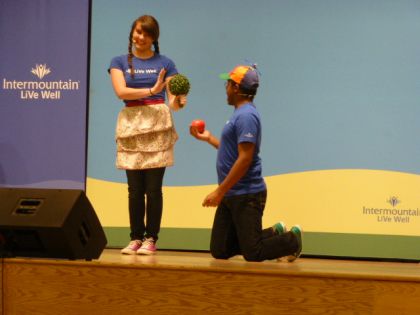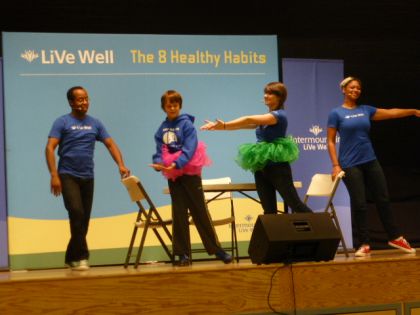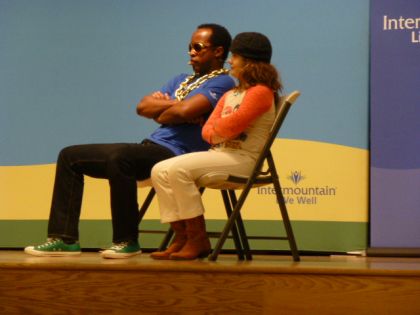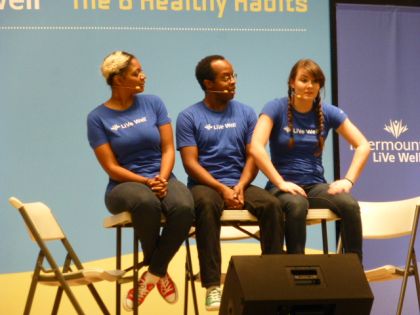“Eventually we gave up either punishing or rewarding the children.”
—Maria Montessori, The Secret of Childhood
It’s a new year and many of us make resolutions. As parents, in spite of our best intentions, we sometimes get stuck in patterns that are no longer working or may not be the most beneficial for our children. What are some new ways to deal with the normal day-to-day challenges of being a parent?
Re-Thinking Some Common Practices
No one is really taught how to parent. We do what our parents did, or the direct opposite. Some practices enter the mainstream and are implemented by parents without much thought.
How often do you use the phrase “Good job”? Do you use a “time-out” when your child is challenging your patience? Changing some of these rote responses can make a huge difference for children and parents alike. We can communicate to children in ways that help them feel more secure and independent.
Unearned and Unnecessary Praise
The “good job” comment which seems to roll off the tongues of parents, teachers, and by-standers is said with good intentions, but gives very little acknowledgement of what went into accomplishing the “job.” Similar to every child getting a trophy whether the team wins or loses, this empty praise may discourage children from trying new activities at which they might fail. They also may get an inflated sense of self-importance and entitlement.
The adult becomes the judge, and motivation becomes external rather than internal. This “conditional parenting” teaches children to behave in a certain way in order to be loved. It becomes another method of control, just like punishment.
It’s more meaningful to have adults understand a child’s feelings and communicate appreciation of the effort and natural hard work involved in learning. Practice, trial and error, and persistence in the face of failure help your child’s brain develop.
Alternatives to false praise:
- Talk about specifics: “That picture has so much red color.” “You tried really hard to make that goal in soccer.”
- Solicit the child’s thoughts and feelings: “What did you do when you spilled the tray of food?” “How did you feel when you missed the goal?”
- Encourage persistence and hard work: “You sounded out that word all by yourself.”
Punishment or Setting Limits
In The Discovery of the Child Maria Montessori says, “To tell a child: ‘Stand still like me!’ does not enlighten him.” She explains that such a demand is both physically and mentally impossible for a “still growing individual.” What may appear obvious and understandable for adults is not always true for a child.
Some time ago, as a reasonable option to corporal or demeaning punishments, the “time-out” method became the discipline of choice. This prevalent form of discipline makes a child experience a feeling of rejection and learn that love will be withdrawn if she does not conform to our wishes.
Misbehaving is often a call for help or some added adult encouragement and understanding. Helping your child verbalize feelings often is enough for her to continue to problem solve. Sometimes physical holding is necessary to stop a tantrum and help a child learn to self-soothe.
Discipline is about teaching, not punishing. Rather than exclude a child, we want to encourage the development of empathy and insight. We want to set clear limits while helping empower children to understand and collaborate with us so that respect flows in both directions.
Changing Time-Out to Time-In
We want to convey love and respect, letting children know it is the behavior we want to change, not the child. “Time-in” means we know where the child is developmentally and can intervene before the child seriously misbehaves. If you stay calm and spend “time-in” with your child, both of you will feel more secure and in control.
These ideas may help:
- Anticipate and prepare for challenging situations. Have appropriate expectations for your child’s behavior based on his age and abilities. Be willing to adjust your plans accordingly.
- Take games or quiet activities for those wiggly waiting times in the doctor’s office, a restaurant, or on the airplane.
- Support your child by explaining the reasons for requests. Make clear brief explanations appropriate to the child’s age.
- Spend 5 to 10 minutes with a young child when you notice frustration developing. Change the activity or just assist in making it easier to handle.
Look to the Child
What are reasonable expectations? Psychologist Madeline Levine reminds us that “the happiest, most successful children have parents who do not do for them what they are capable of doing.” This leads to independence and a strong sense of self-esteem. We need to stand back while they figure out things on their own. We as parents can give up judging ourselves when our children don’t live up to our expectations. We can instill positive values and encourage persistence while watching our children learn from the normal challenges in life.
“No one who has ever done anything really great or successful has ever done it simply because he was attracted by what we call a ‘reward’ or by the fear of what we call a ‘punishment.'”
—Maria Montessori, The Discovery of the Child
by Jane M. Jacobs, M.A., Montessori Educational Consultant at Montessori Services. She is a trained primary Montessori directress and also a Licensed Marriage and Family Therapist. She has taught children aged 2 to 7 years in Montessori schools, Headstart, and also in a preschool for children with developmental challenges. In her counseling practice, she helps individuals, couples, and families.
http://montessoriservices.addr2.com/view/350390d/702cd6/

















